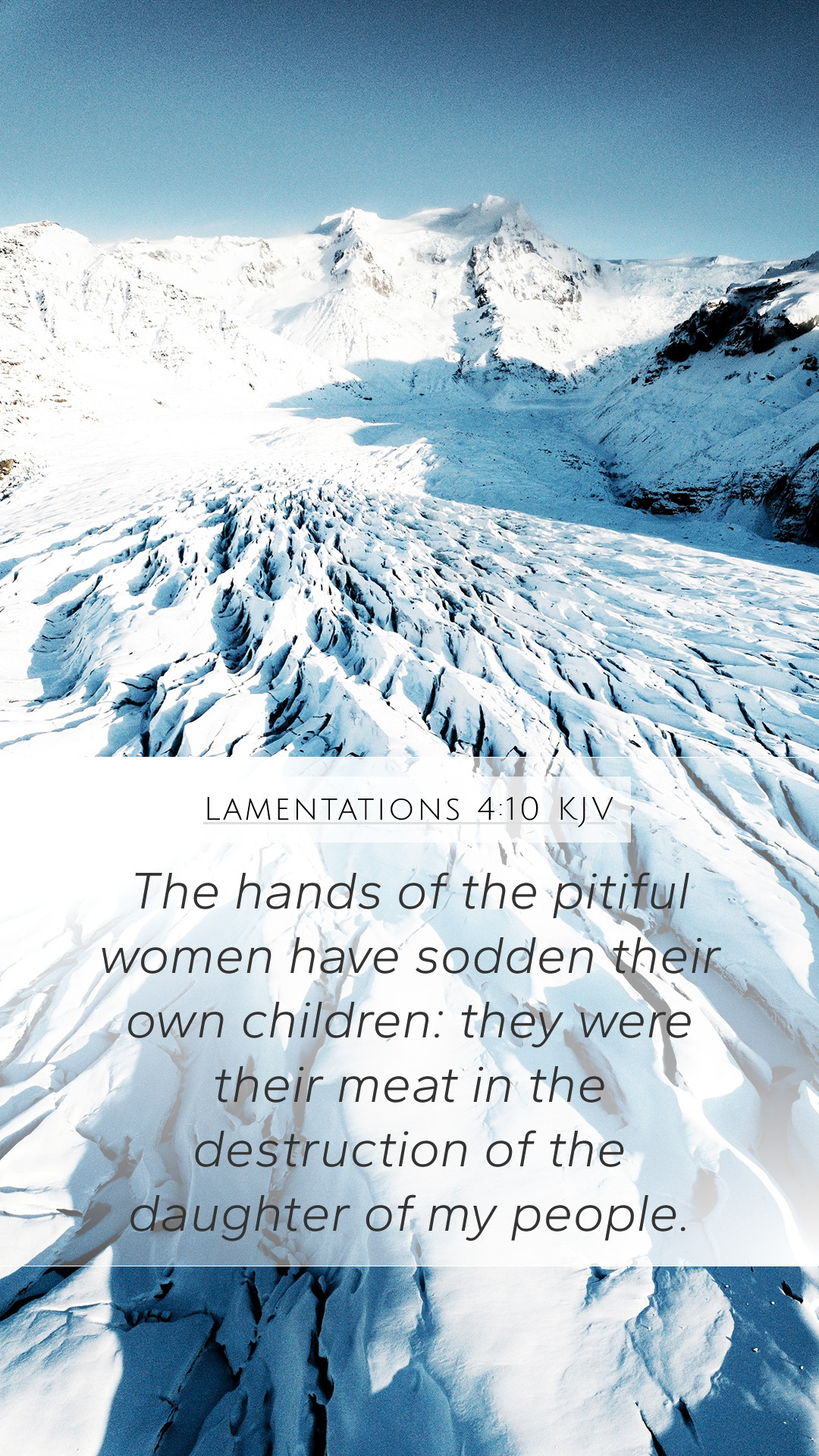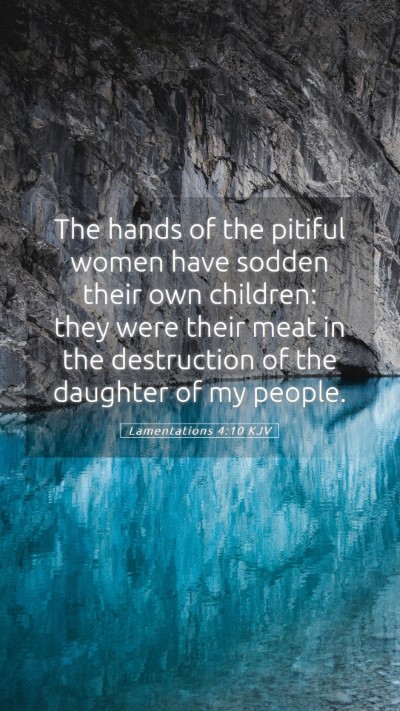Understanding Lamentations 4:10
Lamentations 4:10 states, "The hands of the pitiful women have sodden their own children: they were their meat in the destruction of the daughter of my people." This verse expresses a deep sense of anguish, highlighting the extreme suffering and desperation experienced during the siege of Jerusalem.
Bible Verse Meaning
The heart-wrenching imagery employed in this verse portrays the utter desolation that plagued the city. To comprehend its full meaning, it's essential to examine various aspects, including historical context, literary devices, and theological implications. Insights from renowned public domain commentaries provide a deeper understanding.
Commentary Insights
-
Matthew Henry:
Henry depicts the intense suffering of women who, amid the dire circumstances brought on by famine and siege, resorted to the ultimate tragedy of cannibalism. He emphasizes that this extreme act is both a result of their desperation and a reflection of the severity of God's judgment on His people due to their sinfulness. Henry's commentary underscores moral decay and the loss of compassion during catastrophic times.
-
Albert Barnes:
Barnes focuses on the cultural context within which this verse appears. He explains that the "pitiful women" refers to mothers who have been stripped of their dignity and humanity through suffering. The act of consuming their children is portrayed as a harrowing illustration of the degradation of societal norms under siege. Barnes notes that this reflects both the consequences of sin and the fulfillment of prophetic warnings.
-
Adam Clarke:
Clarke draws attention to the emotional and spiritual implications of the passage. He remarks on the profound sorrow experienced not only by the individuals directly affected but also by the community as a whole. Clarke suggests that this horrifying reality serves as a stark reminder of the consequences of abandoning God and the desperate need for repentance. He emphasizes the need to recognize such conditions to ensure they do not recur.
Historical Context
The book of Lamentations is set against the backdrop of the Babylonian conquest of Jerusalem in 586 BC. Understanding the historical context is crucial for grasping the gravity of the situation that led to such tragic outcomes. The siege resulted in famine, despair, and ultimately horror as the people faced divine retribution for their unfaithfulness to God.
Theological Implications
Lamentations 4:10 forcefully illustrates the consequences of sin. The verse reveals the depths of human despair and highlights the need for divine mercy. The act of cannibalism symbolizes the complete breakdown of societal and familial bonds when people abandon their faith. Furthermore, it serves as a potent warning about the severity of turning away from God.
Application to Daily Life
As believers reflect on this verse, it is essential to consider its relevance today. The cry of Lamentations is not merely a historical account but a poignant reminder of the consequences of estrangement from God. It invites believers to evaluate their personal and communal faithfulness and to seek repentance and restoration.
Cross References
- Deuteronomy 28:53-57 - Highlights the dire consequences of disobedience to God.
- Jeremiah 19:9 - Discusses the horror of famine during sieges in Jerusalem.
- Ezekiel 5:10 - Portrays similar themes of desperation and suffering among the people.
Conclusion
Lamentations 4:10 stands as a grim reflection of humanity's potential for despair in the absence of divine guidance. Through insightful commentary and exploration of theological implications, this verse provides profound lessons on the importance of faithfulness to God. It encourages earnest contemplation around current societal issues and the necessity of turning toward grace and restoration.
Further Study Resources
For those seeking to dive deeper into Bible verse interpretations, consider utilizing Bible study groups, online Bible study tools, and comprehensive Bible study guides that can enhance understanding and provide clearer insights into Scripture analysis.


